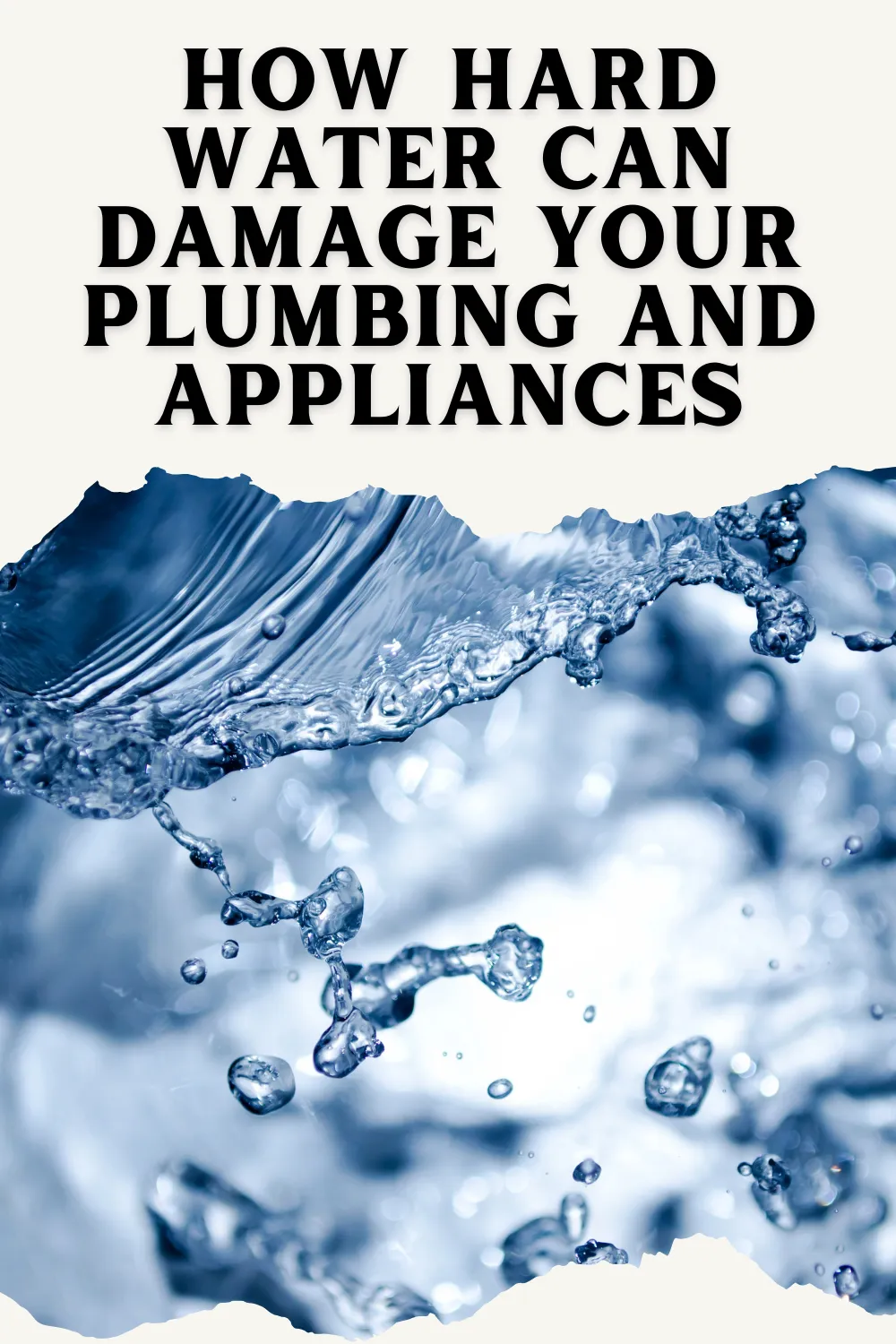
How Soft Water Can Help You Save on Soap and Detergent
Switching to soft water isn’t just about cleaner dishes and softer clothes—it's an investment in your home, your appliances, and your wallet. - Appliance Boss
Introduction
Hard water, often a common household issue, can wreak havoc on your cleaning products, your plumbing, and even your skin. If you’ve ever noticed soap scum on your shower walls, or clothes that feel stiff after washing, you might be dealing with hard water. Enter soft water, a solution that offers both functional and financial benefits. When you switch to soft water, you’ll find that you can save on soap and detergent, improve cleaning results, and extend the lifespan of appliances. But how exactly does soft water work, and why should you care? Let’s explore the science behind water softening and the many ways it can benefit your home.
What Is Soft Water and How Does It Differ from Hard Water?
Water is considered “hard” when it contains high levels of dissolved minerals, primarily calcium and magnesium. These minerals, while harmless to drink, can interfere with the effectiveness of soaps and detergents. On the other hand, soft water is treated to remove these minerals, typically through a process called ion exchange. This makes soft water less likely to leave behind soap scum or mineral deposits, which can both save you money and enhance your home’s cleanliness.
Understanding the Science Behind Water Softening
Water softening works by using a filtration system, often a water softener, that replaces the calcium and magnesium ions in hard water with sodium or potassium ions. This process reduces the hardness of the water, making it more compatible with soaps and detergents. The result? A gentler, more efficient cleaning process that requires less product to achieve the desired results.

How Hard Water Affects Soap and Detergent Efficiency
Hard water reduces the effectiveness of soap and detergent by binding with them and creating insoluble compounds, often seen as soap scum. This means you have to use more soap or detergent to get the same cleaning power. This not only increases your household expenses but also leads to soap scum buildup in sinks, bathtubs, and even on your skin, making you feel less clean.
The Role of Calcium and Magnesium in Hard Water
Calcium and magnesium, the primary culprits in hard water, react with soap molecules to form insoluble salts. These salts create stubborn residues on your skin, clothes, and plumbing, leading to the need for more soap and frequent cleaning. By removing these minerals, soft water eliminates the problem at its source, providing cleaner surfaces with less effort.
The Cost of Using Soap and Detergent with Hard Water
The presence of calcium and magnesium in hard water makes soap and detergent less efficient. You may find yourself using double the amount of detergent just to get a decent lather or clean dishes. Over time, this translates into higher spending on cleaning products, not to mention the wear and tear on your appliances caused by the mineral buildup.
The Hidden Benefits of Soft Water for Cleaning and Laundry
Beyond just reducing soap usage, soft water has hidden benefits that make it an excellent choice for laundry and cleaning. Clothes come out softer, towels stay fluffier, and your washing machine runs more smoothly. The soft water reduces mineral deposits, which can prevent clogged pipes and extend the life of appliances like dishwashers, washing machines, and water heaters.
How Soft Water Saves You Soap and Detergent
Soft water’s ability to perform cleaning tasks with less soap and detergent is its most immediate benefit. Without the interference of calcium and magnesium, your soaps can do what they’re meant to do—clean effectively and rinse off easily. This results in a noticeable reduction in the amount of product you use over time.
Why Soft Water Requires Less Soap and Detergent
Because soft water doesn’t contain the minerals that interact with soap, you can achieve a higher lather with less product. This means you use smaller amounts of soap or detergent in each wash, which can significantly cut costs and reduce waste over the long term.
The Impact of Soft Water on Soap Lathering and Effectiveness
When washing dishes, laundry, or your body, soft water makes soap lather better. The absence of minerals allows the soap molecules to remain intact, forming a more effective lather. This enhanced lathering means you need less soap to get the same amount of cleaning power.
How Soft Water Helps Detergent Work More Efficiently
Detergent efficiency is significantly boosted with soft water. Detergents don’t have to fight the minerals in the water, allowing them to do their job of breaking down grease and grime. This leads to cleaner laundry, dishes, and surfaces without requiring extra detergent or soap.
Saving Money by Using Less Cleaning Product
Using less detergent, soap, or fabric softener directly translates into savings for your household. With soft water, you can purchase smaller quantities of cleaning products because you’re using less per wash. Over time, this simple change can lead to significant cost reductions.
The Environmental Benefits of Using Less Soap and Detergent
Not only does using less soap save money, but it also reduces the amount of chemicals and waste that go down the drain. By switching to soft water, you contribute to less pollution, fewer chemical residues in the water system, and a more eco-friendly cleaning routine.
Reducing Chemical Waste and Pollution with Soft Water
When you use less soap and detergent, you’re also reducing the amount of chemicals that enter local water systems. This helps protect the environment by reducing chemical runoff that can harm ecosystems and water quality.
How Soft Water Contributes to a More Eco-Friendly Cleaning Routine
Soft water allows for more efficient cleaning, which reduces your overall consumption of cleaning products. This not only lowers your carbon footprint but also reduces plastic waste from detergent bottles and packaging.
The Cost Savings Beyond Soap and Detergent
The financial advantages of soft water extend far beyond cleaning products. Soft water helps prevent limescale buildup in appliances like dishwashers, water heaters, and washing machines, reducing the need for repairs and replacements.
How Soft Water Prolongs the Life of Cleaning Appliances
Soft water keeps your appliances running smoothly by preventing mineral deposits from accumulating inside. This reduces wear and tear, helping appliances last longer and perform more efficiently, saving you money on replacements and repairs.
The Long-Term Savings on Plumbing Maintenance
Mineral buildup from hard water can lead to clogged pipes and reduced water flow. With soft water, you’re less likely to face costly plumbing issues, saving you money on maintenance and repairs.
Soft Water and Better Cleaning Results
Soft water doesn’t just save you money—it also improves your cleaning results. Without the interference of minerals, your soaps and detergents can work at their full potential, leaving everything cleaner, brighter, and fresher.
How Soft Water Improves the Performance of Soap and Detergent
The enhanced performance of soap and detergent in soft water means you’ll get a better cleaning experience. Clothes come out softer, dishes are streak-free, and surfaces shine without stubborn soap scum.
The Role of Soft Water in Enhancing Laundry Quality
Soft water plays a crucial role in laundry care. It helps detergents break down stains more effectively, leaving clothes brighter and softer with less detergent required.
How Soft Water Helps Prevent Soap Scum Build-Up
Soap scum is a frustrating issue caused by hard water minerals combining with soap. Soft water eliminates this problem, resulting in cleaner surfaces, less scrubbing, and more time for you to enjoy your home.
Understanding the Economics of Soft Water for Households
While the initial investment in a water softener may seem like a significant expense, the long-term savings on soap, detergent, appliances, and plumbing make it a wise choice for many households.
The Initial Investment: Is a Water Softener Worth It?
Although installing a water softener requires an upfront cost, the savings you’ll see on detergent, appliance repairs, and plumbing maintenance quickly offset this. Plus, soft water can improve your quality of life at home.
How Quickly You’ll Start Saving on Soap and Detergent
The financial benefits of soft water are often immediate. After switching, you’ll notice a reduction in your soap and detergent usage during the first few months, leading to instant savings.
Common Myths About Soft Water and Soap Usage
There are plenty of misconceptions about soft water, such as the idea that it doesn’t clean as effectively as hard water. Let’s debunk these myths and clear up any confusion.
Debunking the Myth: Soft Water Doesn’t Clean as Well
One common myth is that soft water doesn’t clean as well as hard water. In reality, soft water actually cleans better by allowing detergents to work more efficiently and by reducing soap scum buildup.
How Soft Water Doesn’t Necessarily Mean Over-Softening Your Water
Some worry that softening water too much could lead to issues with soap lather. However, with the right water softener, you can avoid over-softening and still achieve superior cleaning results.
How to Maximize Soap and Detergent Savings with Soft Water
To get the most out of your soft water, it’s essential to adjust your detergent amounts appropriately. Even though soft water requires less detergent, finding the optimal amount for your household is key to maximizing savings.
Tips for Using the Right Amount of Soap and Detergent with Soft Water
Using the right amount of soap is crucial. With soft water, you can often reduce detergent quantities by half, but this can vary depending on your specific needs. It’s all about finding the perfect balance.
When to Adjust Detergent Amounts for Optimal Performance
Adjusting detergent quantities based on load size and soil level is essential when using soft water. This ensures you’re using the least amount of detergent while still achieving optimal cleaning.
Additional Benefits of Soft Water for Your Home
The benefits of soft water don’t stop at cleaning and cost savings. It also helps protect your skin, your hair, and your appliances from the harsh effects of hard water.
How Soft Water Protects Your Skin and Hair
Soft water is gentler on your skin and hair, preventing dryness and irritation. By reducing mineral buildup, it helps your skin retain moisture and your hair stay softer and shinier.
The Positive Effects of Soft Water on Your Home Appliances
Soft water extends the lifespan of your appliances. Dishwashers, water heaters, and washing machines all perform better and last longer when you use soft water, keeping your home running smoothly.
Conclusion
Why Investing in Soft Water Can Save You Money and Improve Your Cleaning Routine
From brighter laundry to longer-lasting appliances, soft water is a quiet game-changer in any home. By reducing your soap and detergent use, you not only cut costs but also contribute to a more eco-friendly lifestyle. The benefits go far beyond what you see—they touch your plumbing, your health, and your wallet.
Final Thoughts on the Long-Term Benefits of Soft Water for Your Household
A water softener may seem like a simple upgrade, but the long-term savings and improvements are substantial. If you're ready to enjoy cleaner clothes, shinier dishes, and fewer plumbing issues, it's time to consider soft water seriously.
For help with installation, maintenance, or more expert advice, reach out to Zip Does Plumbing. Visit www.zipdoesplumbing.com or call us today at (661) 370-2701. We're here to help you make smarter choices for your home and your budget.
